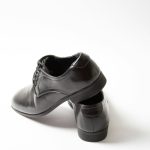Hearing loss often creeps in silently, making early detection essential for maintaining your quality of life. Recognizing the initial signs can empower you to seek help sooner, protecting your hearing ability. This guide breaks down common symptoms and provides actionable steps you can take. By being proactive, you can navigate the journey toward better hearing health with confidence and ease. Don’t let subtle changes slip by—take control of your auditory well-being today.
Understanding Hearing Loss
Hearing loss is a prevalent condition, affecting millions worldwide. It can be broadly classified into three types: conductive, sensorineural, and mixed. Conductive hearing loss occurs when sound waves cannot reach the inner ear, often due to blockages or damage to the ear canal or middle ear. Sensorineural hearing loss involves damage to the inner ear or auditory nerve, while mixed hearing loss is a combination of both.
Also read : Nicotine pouches and their effects on teeth: what users should know
Statistics reveal that approximately 466 million people globally experience hearing loss, with numbers expected to rise. It is more common in the elderly, but younger demographics are also affected, often due to noise exposure or genetic factors.
Recognising the early signs of hearing loss is crucial for effective management. These signs include difficulty understanding conversations, especially in noisy environments, and frequently asking others to repeat themselves. Early detection can lead to interventions that significantly improve quality of life, such as hearing aids or cochlear implants.
In parallel : Unlocking the Wellness Secrets: The Surprising Health Advantages of Matcha Green Tea
Understanding the overview of hearing loss helps individuals take proactive steps in seeking help and preventing further deterioration. Regular hearing check-ups are recommended, especially for those in high-risk groups or who notice any early signs.
Common Early Symptoms of Hearing Loss
Recognising early symptoms of hearing loss is essential for timely intervention.
Difficulty in Understanding Conversations
One of the initial signs is difficulty in understanding conversations, especially in group settings. Individuals may find it challenging to follow discussions, missing key parts of conversations. This can lead to misunderstandings and frustration.
Frequently Asking for Repetition
Another common symptom is frequently asking for repetition. If you notice yourself or someone else asking others to repeat themselves often, it might be a sign of hearing loss. This repetition is usually needed to clarify parts of the conversation that were missed or misheard.
Struggling with Background Noise
Struggling with background noise is also a significant indicator. Many people with hearing loss find it hard to distinguish speech from surrounding sounds. This difficulty can make environments like restaurants or busy streets particularly challenging.
Observing these changes in social interactions can be crucial. Those experiencing hearing loss might withdraw from social settings due to embarrassment or frustration. Being aware of these early symptoms can prompt individuals to seek professional advice and consider options like hearing aids or other assistive technologies.
Risk Factors for Hearing Loss
Understanding the risk factors for hearing loss is essential in taking preventive measures. Several elements contribute to the likelihood of developing hearing loss.
Age-Related Factors
As individuals age, the risk of hearing loss increases significantly. This is primarily due to the natural degeneration of the inner ear structures and auditory pathways. Age-related hearing loss, known as presbycusis, is one of the most common causes of hearing impairment in older adults.
Environmental Influences and Exposure to Noise
Environmental factors play a crucial role in hearing health. Prolonged exposure to loud noises, such as those from machinery, concerts, or headphones, can damage the hair cells in the inner ear, leading to noise-induced hearing loss. It's vital to limit exposure to high-decibel environments and use protective gear when necessary.
Genetic Predispositions and Health Conditions
Genetic factors also influence susceptibility to hearing loss. Individuals with a family history of hearing impairment may have a higher risk. Additionally, certain health conditions, such as diabetes and cardiovascular diseases, can impact blood flow to the ear, contributing to hearing deterioration. Recognising these causes of hearing loss can help in early detection and management.
Self-Assessment Tools for Hearing Loss
Taking control of your hearing health can start with a simple self-assessment for hearing loss. Online hearing quizzes and tools offer a convenient way to evaluate your auditory abilities from the comfort of your home. These tools typically involve listening to various tones and answering questions about your hearing experiences in different environments.
Tracking personal hearing changes is crucial. By regularly using these hearing tests, you can monitor any shifts in your ability to perceive sounds. This proactive approach helps in identifying potential issues early, allowing for timely intervention.
However, while self-assessment tools are valuable, they are not a substitute for professional evaluation. If you notice consistent changes in your hearing or if the results of your self-assessment indicate potential issues, it is essential to seek a comprehensive evaluation from an audiologist. This ensures that any hearing loss is accurately diagnosed and managed effectively.
Seeking Professional Help
When experiencing signs of hearing loss, seeking a hearing loss diagnosis through an audiology consultation is crucial. Professional evaluation ensures accurate diagnosis and effective management.
How to Prepare for a Hearing Test
Preparation for a hearing test involves gathering any relevant medical history and noting specific symptoms or situations where hearing difficulties occur. This information assists audiologists in tailoring the evaluation to your needs. Bringing a list of medications and previous hearing tests, if available, can also be beneficial.
What to Expect During an Audiology Appointment
During an audiology consultation, expect a comprehensive assessment involving various tests. These may include pure-tone audiometry, speech testing, and tympanometry. The audiologist will evaluate the type and degree of hearing loss, providing a clear understanding of your auditory health.
Understanding Your Hearing Test Results
Post-assessment, the audiologist will explain the hearing test results, detailing the nature of any identified hearing loss. They will discuss potential causes and recommend suitable interventions, such as hearing aids or other assistive devices. Following up on these recommendations is essential for effective management and improvement of hearing health.
Personal Stories and Testimonials
Hearing loss is a deeply personal journey, often marked by unique hearing loss experiences. Many individuals share their personal accounts of hearing loss, highlighting the profound impact it has on their lives. For instance, Sarah, a 45-year-old teacher, noticed her first signs of hearing difficulty during staff meetings, where she struggled to follow conversations. This early detection prompted her to seek help, leading to significant improvements in her professional and personal life.
These narratives underscore the importance of recognising early signs. By sharing their stories, individuals like Sarah encourage others to take proactive health measures. Early intervention can transform lives, allowing people to continue engaging fully in their communities.
Personal accounts of hearing loss also reveal the emotional journey involved. Many experience feelings of isolation or frustration before seeking help. However, once they address their hearing issues, they often report a renewed sense of confidence and connection.
These stories serve as powerful reminders of the benefits of early detection and intervention. They inspire others to pay attention to their hearing health, seek professional advice, and embrace solutions that can enhance their quality of life.
















